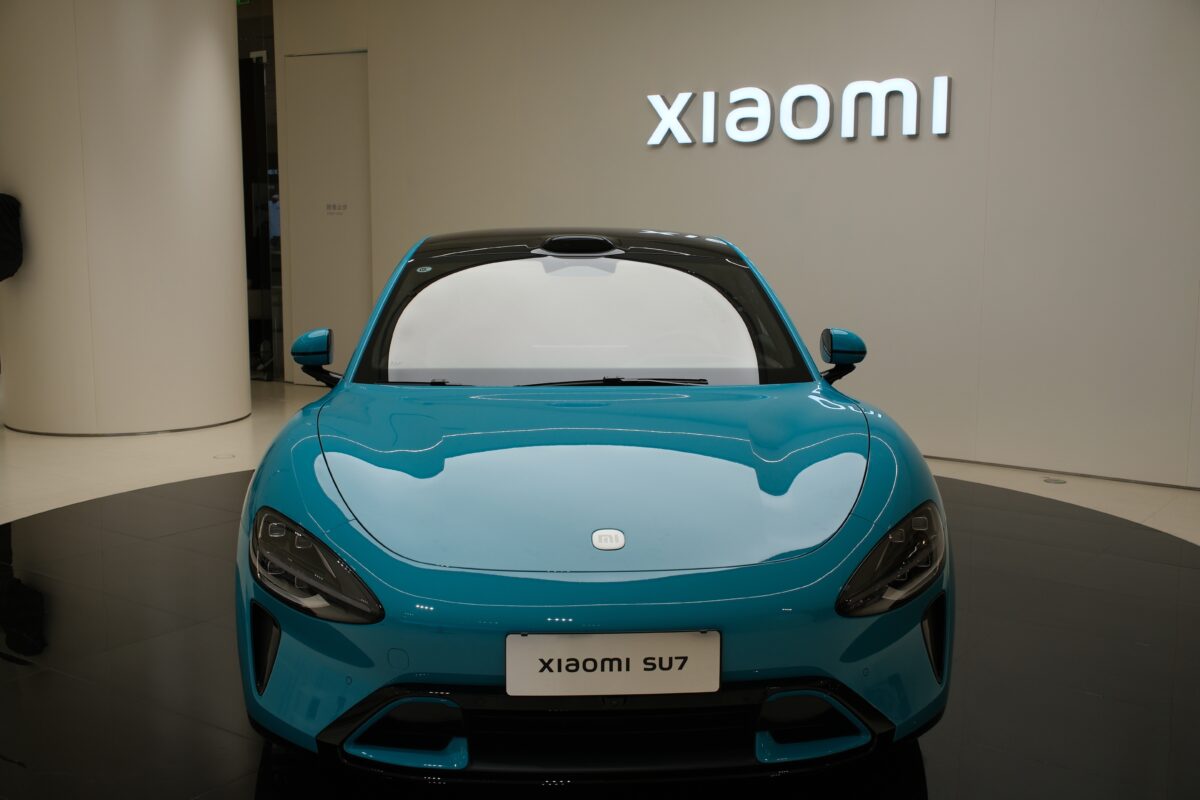TLDRs;
- Xiaomi launches luxury customization for SU7 Ultra and YU7 Max, adding at least US$13,700 to base prices.
- The service offers 24-carat gold badges and exclusive trims to rival Porsche’s bespoke offerings in China.
- Porsche faces rising competition from Chinese EV makers leveraging design, battery tech, and national pride.
- Xiaomi’s luxury EV strategy signals China’s growing dominance in both performance and premium car segments.
Chinese smartphone titan Xiaomi is accelerating deeper into the luxury electric vehicle (EV) market with its latest move, a customization service for its flagship SU7 Ultra sedan and YU7 Max SUV.
The initiative marks a bold attempt by Xiaomi to compete with elite European automakers like Porsche, offering bespoke options such as 24-carat gold bonnet badges, unique paint finishes, and colored forged wheel hubs.
Launched in China last month, the customization program allows buyers to tailor their EVs with personalized trims and finishes, but luxury doesn’t come cheap. Custom packages start at 100,000 yuan (US$13,700), on top of the 529,900 yuan (US$74,000) base price of the SU7 Ultra.
This move underscores Xiaomi’s ambition to climb the automotive prestige ladder and appeal to wealthy Chinese consumers who might otherwise gravitate toward European luxury brands.
Challenging Porsche’s Prestige
For years, Porsche has dominated China’s premium car segment, with its 911 and Taycan models serving as status symbols for the country’s affluent class. However, the tide is turning as homegrown automakers like Xiaomi, BYD, and Nio push aggressively into both the performance and luxury EV spaces.
While Porsche’s Taycan GTS retails at around 918,000 yuan (US$128,000), Xiaomi’s SU7 Ultra offers a more affordable yet luxurious alternative, complete with advanced battery technology, intelligent driving systems, and an aesthetic that bears a striking resemblance to the Taycan.
According to industry observers, this strategy taps into a growing appetite among China’s elite for “national pride in luxury innovation” , a sentiment driving demand for local brands that can rival, and even outshine, their Western counterparts.
Gold-Plated Ambitions
The centerpiece of Xiaomi’s new offering is exclusivity. Each customized SU7 Ultra can be equipped with 24-carat gold detailing, from the iconic Xiaomi bonnet emblem to interior accents. The company says it wants to redefine how Chinese luxury is perceived, blending craftsmanship, personalization, and technological precision in a single package.
The customization program isn’t limited to sedans. The YU7 Max SUV, priced from 329,900 yuan (US$46,000), is also eligible for premium upgrades. Marketed as Xiaomi’s answer to Ferrari’s Purosangue SUV, the YU7 Max aims to capture buyers seeking sportier aesthetics with lavish detailing.
“Luxury is not only about brand history, it’s about experience and innovation,” said one Xiaomi executive during the launch event. “Our goal is to let customers express individuality while experiencing world-class electric performance.”
China’s EV Battle Shifts Gears
Xiaomi’s pivot toward ultra-luxury EVs comes at a pivotal time for China’s auto market. Domestic automakers have already conquered the mid-range EV segment, with models from BYD and Xpeng dominating sales charts. The next frontier will be winning over high-net-worth individuals who once viewed European badges as the ultimate symbol of success.
Meanwhile, Porsche, facing pressure from rapid local competition, is expanding its own personalization services in China. The automaker says more than 90% of its 911 buyers already opt for at least one bespoke feature, from handcrafted interiors to exclusive color palettes.
But as Chinese brands like Xiaomi continue to blend AI-powered mobility with handcrafted luxury, the old balance of power in the automotive world is beginning to shift.







